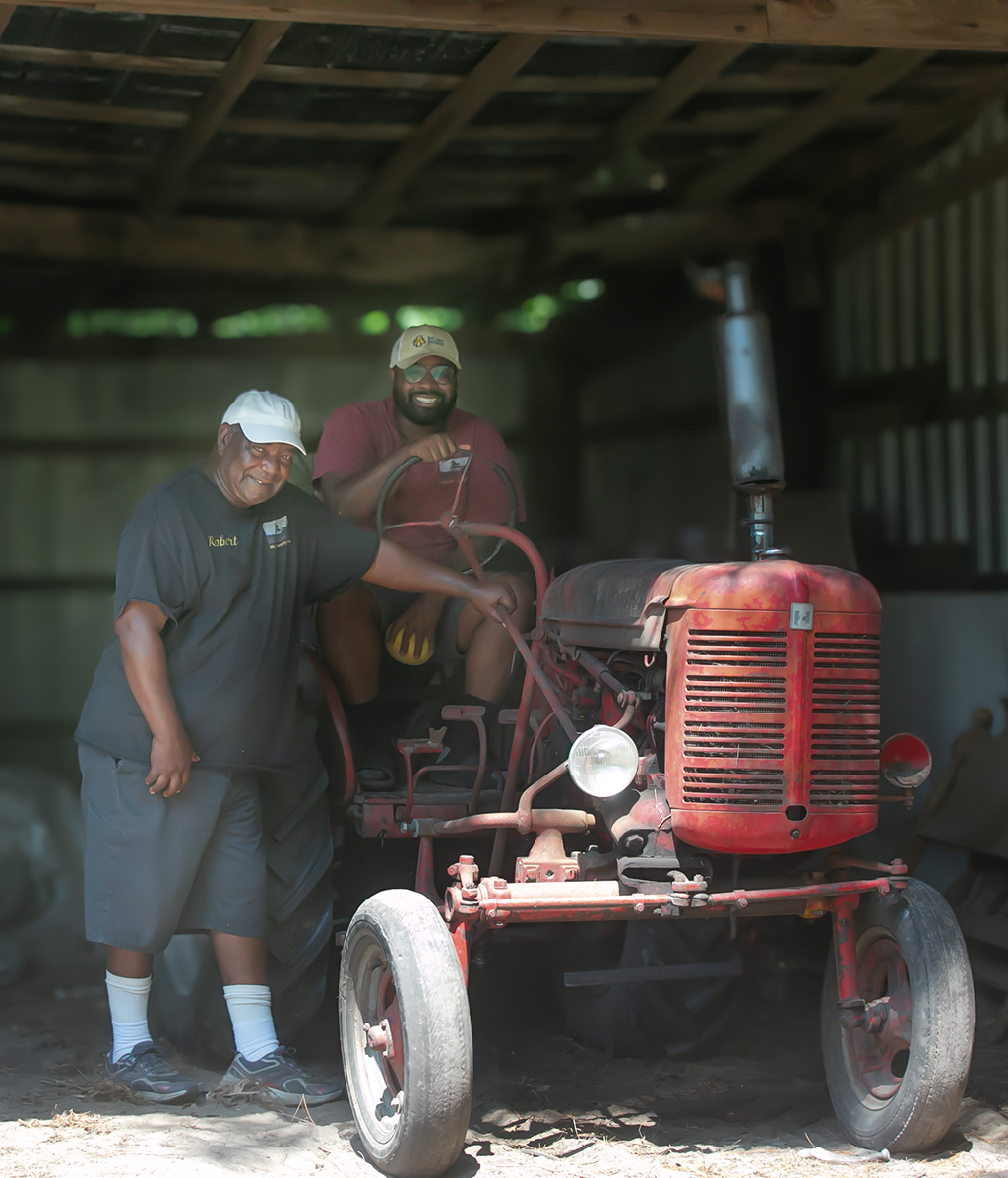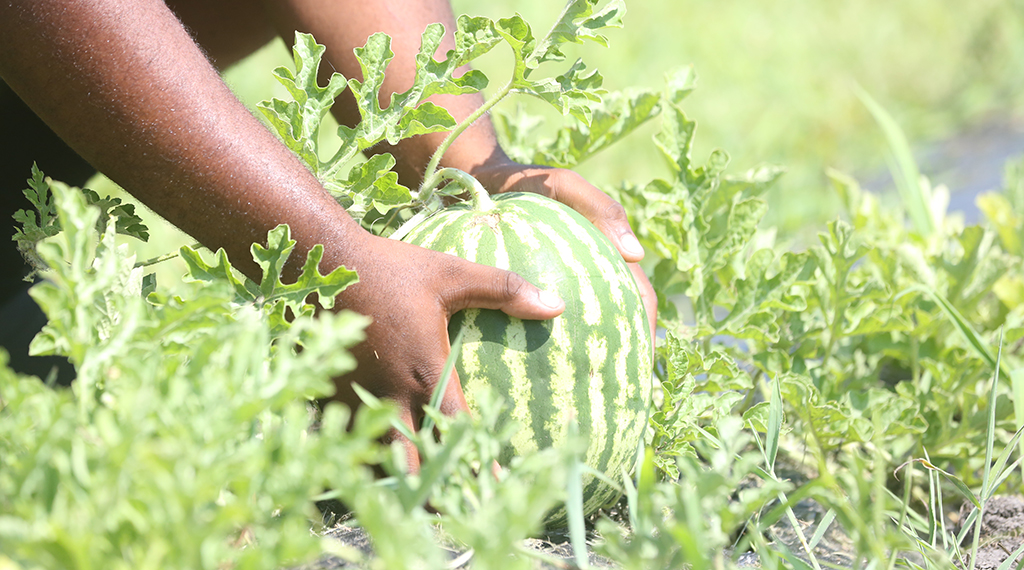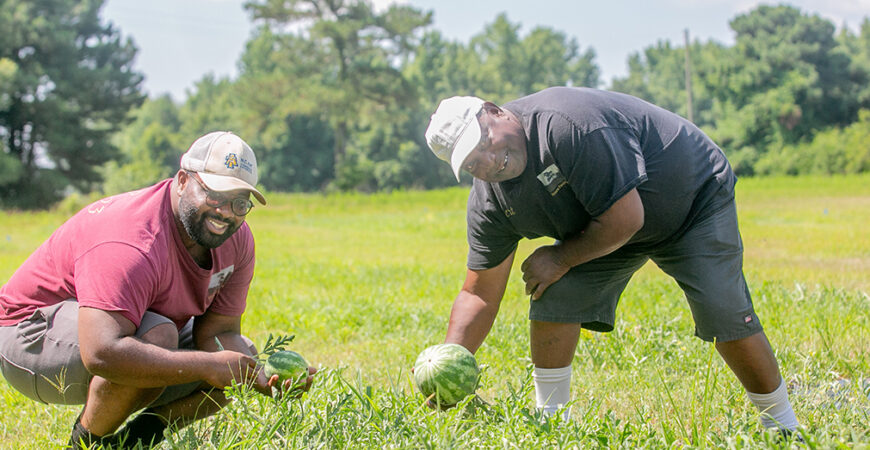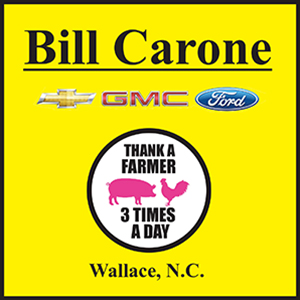Father and son team up to reignite family farm, join HappyDirt
WARSAW — Located in the small town of Warsaw, just a stone’s throw from Interstate 40, is the Moore Family Farm, where owners Robert and Dakota Moore are building their dreams one seed at a time, reviving the family farm that has deep roots in their ancestry.
After graduating from North Carolina Agricultural and Technical State University last May, Dakota returned home with a degree in agriculture and environmental science and determined to bring back the thriving business his ancestors once enjoyed in the very same land they stand today.
The father-son duo recently joined the HappyDirt family and are excited for what the future holds. HappyDirt, formerly known as Eastern Carolina Organics, is an organic produce distributor, broker and marketer based in North Carolina championing farmer-owners and farmers from NC with 67% of the produce they purchase being from the state.
Dakota learned about them through an assistant professor at NC State University while doing an internship through the Center for Environmental Farming Systems.
“She knew that my father and I were trying to farm. I was roughly a sophomore in college trying to figure out what direction I wanted to go into, and I met HappyDirt. They were helping farmers,” said Dakota.
HappyDirt understands challenges such as an aging farmer population and the need for young farmers like Dakota who can transition from the current generation to the new generation of farmers.
“Our family has been farming for hundreds and hundreds of years. My great-grandfather began this same farm in around 1830 and his sons farmed, and my granddaddy farmed, and all the brothers farmed. They had a thriving business in the 1970s, that carried on until approximately the 1990s,” said Robert. “This farm has been able to produce doctors, lawyers, businesspeople, professionals, military, educators, all that kind of stuff, but didn’t produce any more farmers.”
“My ancestors were heavy into education,” Robert told Duplin Journal. “They were pushing building a culture that their children would go to college or go to the military, you know, get professional jobs, and it really worked well, but everybody left the farm.”
According to Robert, his family began leasing their land to industrial farmers in the 1990s, but after he retired and Dakota returned from college, they decided to use their resources and farm their land.
Growing up, Dakota remembers noticing that many of his friends’ parents who were doing well, were farmers.
“They’re eating nice and they’re buying boats, and houses at the beach,” said Dakota. “I was like well we have land — my family lived for generations farming — why can’t we do this? I just never realized nobody in the family went to school for agriculture.”
This realization sparked Dakota’s initial interest in farming. He wanted to learn and began cultivating watermelons in a small area behind his barn.
“We used a hoe to clean the land. No heavy machinery, nothing,” said Dakota, adding they wanted to see if they could grow anything.
He later pursued a career in agriculture and discovered his passion while working at the university’s farm. Currently, Dakota is building their second greenhouse.
Today, the Moores are farming 15 acres of land with their 1957 Farmall tractor, using equipment they rent. Robert shared that while the Farmall doesn’t run perfectly all the time, it has been incredibly helpful.
“It has enabled us to grow because you can do but only so much with the garden hoe.”

When asked what the top item on their wish list would be, the Moores said a Kubota tractor, because with a modern hitch they might be able to find someone who could loan them a disc.
“All of our equipment now is single hitch,” said Dakota. “So, nobody’s equipment would even align with anything that we have.”
Despite the challenges of working without modern equipment to ease some of the labor-intensive tasks on the farm, the Moores are optimistic about the future, especially with a promising partnership that could help market their produce.
“This year we’re trying to make a really big step — to sell at the grocery stores,” said Robert, adding that now the next step for them is to get GAP (Good Agricultural Practices) certified and also obtain their organic certification.
“To be GAP certified you have to have inspectors come and [watch] while we’re harvesting to see how we’re harvesting and that we’re following the food safety procedures — $1,500. Then organic has to follow the same path, another $1,500 and everything has to be logged and recorded. You have to keep extensive records,” said Robert, explaining that everything is documented so that it can be traced back to where it came from and when it was harvested.
“If we pick a watermelon from row one, of plot one. We have to document what day we picked it,” said Robert.
Dakota explained that with organic farming they work with nature, and they use cover crops to add nutrients back to the soil. He emphasized the importance of soil testing and adding nutrients back to the soil, so it doesn’t completely deplete the nutrients over time.
“A cover crop is really a crop that you grow to add amendments to the soil, which is nutrients such as nitrogen, potassium and phosphorus — those are the main nutrients in your soil when you’re growing things,” said Dakota. “A cover crop changes your whole soil quality… You can grow different things just to add those nutrients back to it. … We started with a cover crop mix and that mix actually changed our whole soil microorganisms.”
Robert added that, beyond farming, they are actively involved in community outreach. They teach their interns about organic farming practices and the importance of environmental stewardship. Robert told the Duplin Journal they hope to raise awareness about various career opportunities within the agriculture sector.
“We’re not the only black people who were farmers back in the day that have now leased out their land, there are a lot of those around,” said Robert. “That’s why we are trying to get younger people into farming. Because a lot of these younger people’s grandfathers are farming… And the ones who are not farming still have the land, they are just leasing it out.”
He explained that families who lease their land often receive just enough income to cover their property taxes, missing out on the potential earnings they could make from farming.
Dakota echoed his dad’s sentiment, comparing how much a person could earn working their land versus working in a processing plant for example. “In three months, you could make your yearly salary. Every season, you can make your salary. That is the difference — That puts you in a different mindset,” said Dakota.
The father and son are looking forward to this next chapter for Moore Family Farms and their new partnership with HappyDirt.

 Twitter
Twitter Facebook
Facebook Instagram
Instagram





